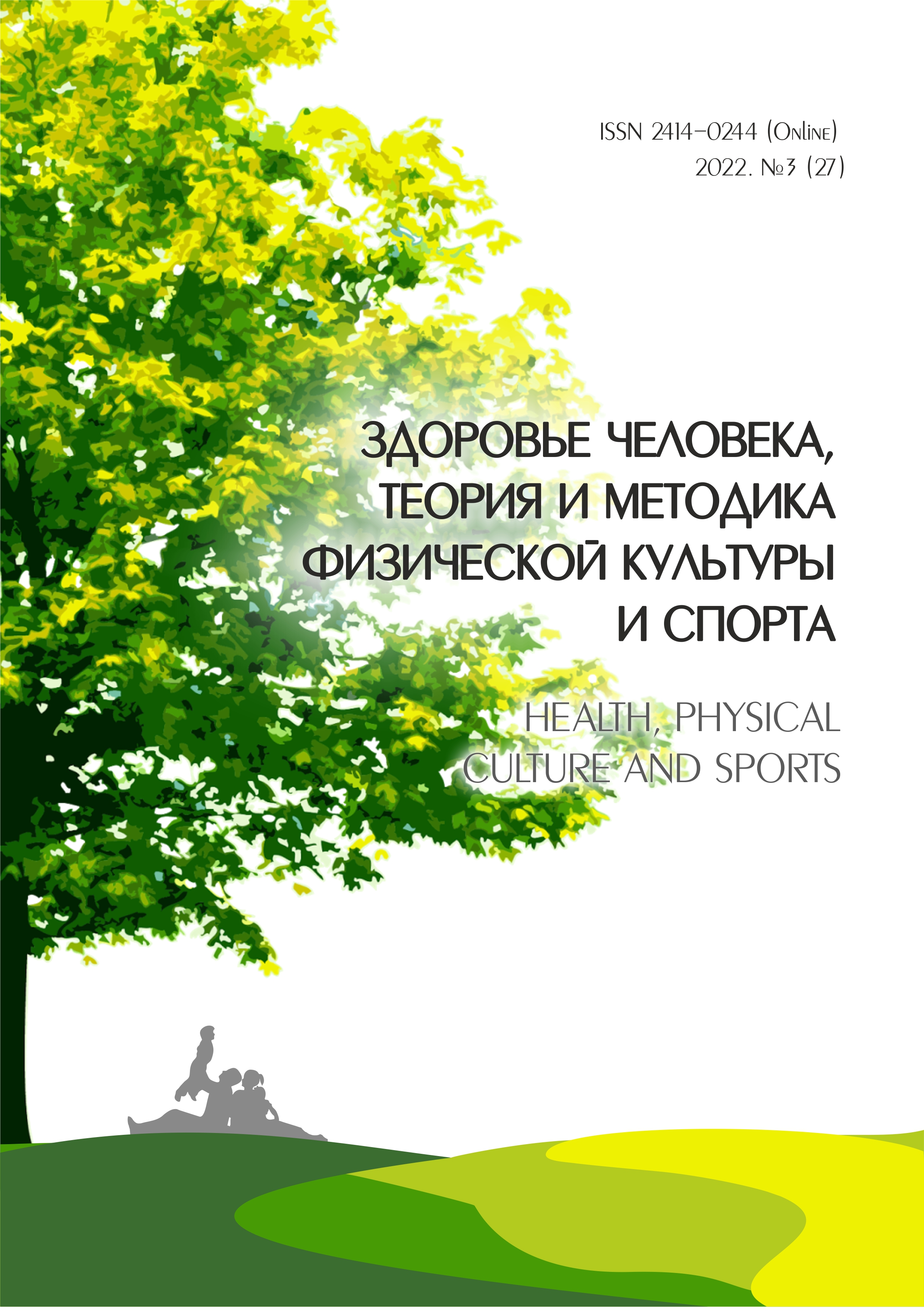USE OF RUNNING TRAINING FOR FLOORBALL PLAYERS
Abstract
Floorball is a very young and promising sport. In our country, there is still no well-formed methodology for general physical and specially physical training of athletes involved in ball hockey in the hall. There are many problems with the development of physical training programs for athletes. A small number of scientists are engaged in this problem in the Russian Federation. Therefore, the relevance of the work is the study of the use of running training methods for floorball players of different age categories.
The purpose of the work was to describe the long-term training process of the players of the NN-FBK-30 and Mininsky University teams. Running training is reviewed by age categories 10–12, 14–16 years. The article raises questions about the methods used in the training of floorball players, such as: repeated, interval, game, cross-country training, special coordination movements around the site during the game. The results of physical testing in dynamics when preparing players for competitions are presented.
The article provides a number of current running tasks that can be used by trainers in OFP and SFP working as in children's, youth and junior teams. The authors of the work believe that this study in the future will help improve the quality of training of floorball players in the Russian Federation.
Downloads
References
Быков А.В. Физическая подготовленность как базовая составляющая командных игровых видах спорта (на примере флорбола) // Известия Тульского государственного университета. Физическая культура. Спорт. 2021. № 8. С. 74–80.
Быков А.В. Программированное обучение двигательным действиям в командных игровых видах спорта // Известия Пензенского государственного педагогического университета им. В.Г. Белинского. 2012. № 28. С. 707–710.
Киселев Я.В., Бочарин И.В., Гурьянов М.С., Эделев А.С. Использование современных тренировочных средств во флорболе // Современные проблемы физического воспитания, спортивной тренировки оздоровительной и адаптивной физической культуры. 2019. С. 183–187.
Киселев Я.В., Гурьянов М.С. Развитие координационных способностей флорболистов 15–18 лет // Здоровье человека, теория и методика физической культуры и спорта. 2021. № 1. С. 70–77.
Киселев Я.В., Бочарин И.В., Широкова М.А., Эделев А.С. Подготовка юношеской сборной Нижегородской области по флорболу 14-16 лет // Вопросы педагогики. 2020. № 9-1. С. 58–65.
Олин В.И. Технологии спортивной тренировки во флорболе. М. : Директ-Медиа, 2018. 236 с.
Патрикиеев Г.В., Лабутина Н.О. Характеристика координационных способностей у флорболистов // Олимпийская идея сегодня. Ростов-на-Дону, 2019. С. 91–101.
Сокунова С.Ф., Гондарева Л.Н., Куракина О.В., Макарова Э.В., Столяров А.А. Влияние занятий флорболом на физическую подготовленность и умственную работоспособность подростков // Ученые записки университета им. П.Ф. Лесгафта. 2022. № 3 (205). С. 438–442.
Халилова Л.И., Халилов Р.Ф., Бондарчук И.Л. Флорбол как способ повышения двигательной активности юношей // Неделя науки СПбПУ. СПб., 2018. С. 111–113.
Щеголева М.Е. Развитие физических качеств у детей, занимающихся флорболом // Молодой ученый. 2020. № 51. (341). С. 475-477.
Copyright (c) 2022 Health, physical culture and sports

This work is licensed under a Creative Commons Attribution-NonCommercial 4.0 International License.
An author should not normally publish manuscripts describing essentially the same research in multiple journals or publication venues. Such redundant publication is generally considered to constitute unethical publishing behavior, and if discovered may result in a manuscript under consideration being rejected, or a published article being retracted.
Authors of manuscripts reporting on original research should present an accurate account of the work performed, accompanied by an objective discussion of its significance. Underlying data should be represented accurately in the manuscript. The manuscript should contain sufficient detail and references to permit others to replicate the work. The fabrication of results and the making of fraudulent or knowingly inaccurate statements constitute unethical behavior and may be cause for rejection or retraction of a manuscript or published article.





